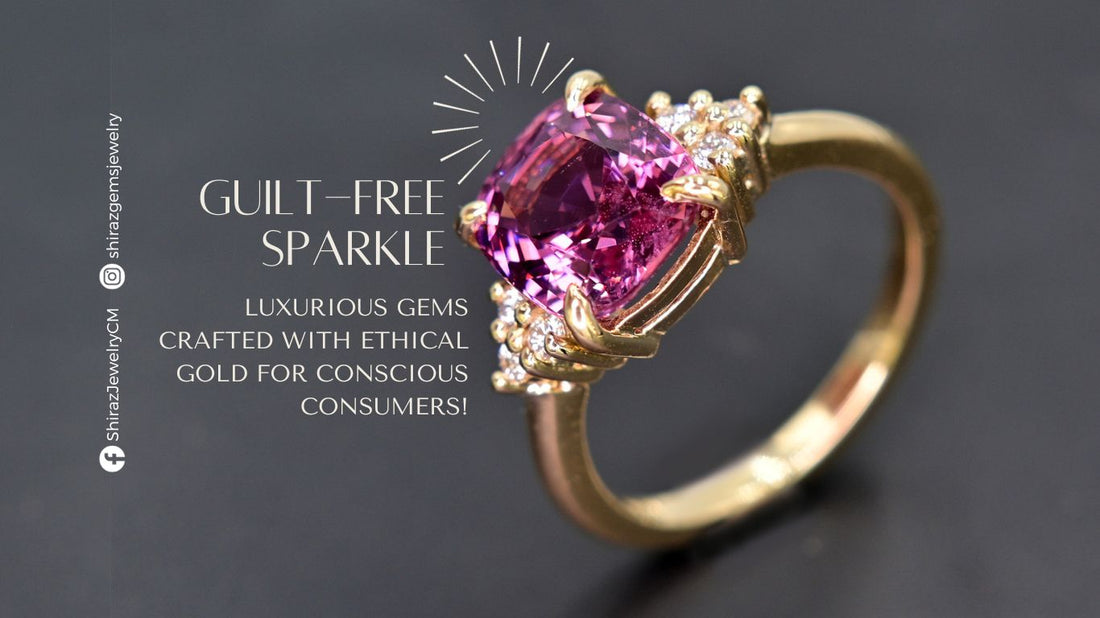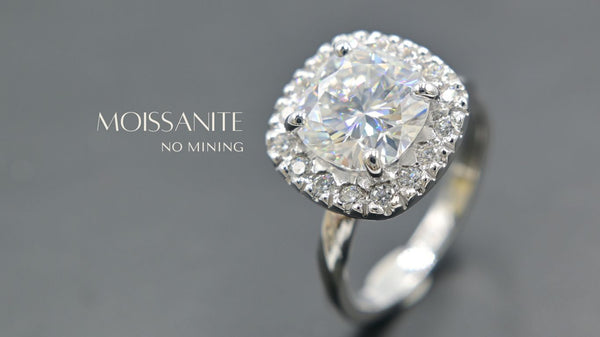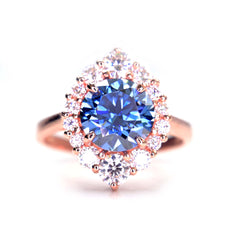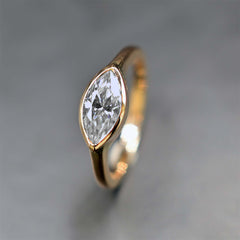
Guilt-free Sparkle: Luxurious gems crafted with ethical gold for conscious consumers!
Shiraz JewelryShare
- Ethical choices and sustainability are the key consumers searching for in choosing a product
- Promoting responsible mining practices, fair labor conditions, and environmentally friendly techniques are but a few things to look at
- It's not just about looking good; it's about feeling good too
Chiang Mai, Thailand - In recent years, there has been a notable shift in the mindset of consumers towards conscious consumption and a growing awareness of the ethical implications behind the products they purchase. This trend has extended to the luxury jewelry industry, where consumers are increasingly seeking out guilt-free sparkle that aligns with their values. Ethical considerations, particularly in regard to the sourcing of gold and gemstones, have become significant factors in the purchasing decisions of conscious consumers. In this post we will discuss about the world of ethical gold and gemstone production, exploring the importance of responsible sourcing, ethical standards, and the positive social impact of supporting ethical jewelry brands. By understanding and embracing these concepts, consumers can make informed choices and contribute to a more sustainable and socially responsible jewelry industry.
1. The rise of conscious consumerism and ethical considerations in the luxury jewelry industry
Consumers are now seeking products that align with their values and are produced in an ethical and sustainable manner. This shift has extended to the luxury jewelry industry, where consumers are becoming increasingly mindful of the impact their purchases have on the environment and communities.
This is all about tackling these concerns head-on: promoting responsible mining practices, fair labor conditions, and environmentally friendly techniques. Talk about a gold rush of goodness!
The rise of ethical gold can be attributed to a growing demand for transparency and accountability in the jewelry industry. Consumers are now seeking assurance that the gold they purchase has been extracted in a way that respects both the environment and the rights of workers. Ethical gold certification programs have emerged to meet this demand, ensuring that gold miners adhere to strict standards and regulations. These programs not only promote sustainable mining practices but also provide economic opportunities for local communities, empowering them to benefit from the gold industry in a fair and equitable manner. As more consumers become aware of the impact their choices can have, the demand for ethical gold is expected to continue rising, driving positive change in the gold mining industry.
In our 40 years of the jewelry industry, our Shiraz Jewelry team have made decisions and follow the path of sustainable jewelry, ethical gold and gemstone practices, and fair economic opportunities. Whenever possibility allows, we use recycled gold in our jewelry pieces. We handcrafted majority of them to reduce industrial wastage. Although we are not fully there yet, but we strive towards that in long run.
We started using lab-grown gemstones like moissanite and lab diamonds in few of our collection. Check them here:
2. Exploring the importance of responsible sourcing and ethical gold standards
Ethical gold refers to gold that has been sourced and produced in a responsible and sustainable manner. It ensures that miners are protected and treated fairly, and that the environment is not harmed during the mining process. Choosing ethical gold means supporting responsible mining practices and contributing to a more sustainable future.
Gold mining can have devastating consequences for the environment and communities. Irresponsible mining practices often lead to deforestation, water pollution, and the displacement of indigenous communities. It is crucial to consider these impacts when purchasing gold jewelry, as choosing ethical gold can help minimize these negative effects.
3. A spotlight on ethically sourced gemstones and their sustainability credentials
3.1. Ethical considerations in the gemstone industry
Similar to gold, the gemstone industry has also faced ethical concerns, such as child labor and unsafe working conditions. Consumers are now seeking assurance that the gemstones in their jewelry are ethically sourced, meaning they are extracted and processed in a way that respects human rights and the environment.
3.2. Sustainable mining techniques and their impact on gemstone quality
In addition to ethical considerations, sustainable mining techniques can also have a positive impact on the quality of gemstones. By using environmentally friendly mining methods, such as low-impact mining and water conservation techniques, gemstone producers can preserve the natural characteristics and beauty of the stones while minimizing their ecological footprint.

4. Crafting guilt-free sparkle: How ethical gold and gemstones are transformed into exquisite jewelry pieces
4.1 The journey from ethically sourced materials to finished jewelry
Crafting guilt-free sparkle involves a meticulous journey from the sourcing of ethical gold and gemstones to the creation of exquisite jewelry pieces. It starts with selecting responsibly sourced materials and ensuring they meet the required ethical standards. Skilled artisans then transform these materials into stunning jewelry, combining their craftsmanship with the brilliance of ethically sourced gems and gold. Many times these involve making jewelry by hand.
4.2 Ethical manufacturing processes and fair trade practices
To maintain ethical standards, jewelry manufacturers must engage in fair trade practices that prioritize the well-being of workers and sustainability. This includes fair wages, safe working conditions, and minimizing waste in the manufacturing process. By following these practices, ethical manufacturers contribute to the overall integrity and value of the jewelry they create, ensuring guilt-free sparkle for the conscious consumer.
4.3 Supporting fair wages and safe working conditions for jewelry artisans
When you choose to support ethical jewelry brands, you are not only indulging in stunning pieces, but you are also making a positive difference in the lives of jewelry artisans. These brands prioritize fair wages and safe working conditions for their artisans, ensuring that the people behind your favorite sparkles are treated with the dignity and respect they deserve. By purchasing from these brands, you contribute to the empowerment of these talented artisans, allowing them to thrive and support their families.
4.4 Investing in local communities and sustainable development initiatives
Ethical jewelry brands understand the importance of investing in the local communities where they operate. They actively engage in sustainable development initiatives, including education, healthcare, and infrastructure projects, to uplift these communities. By supporting these brands, you are not just buying a piece of jewelry; you are investing in the betterment of communities around the world. It's a win-win situation where your purchase brings joy to your life and creates a positive impact in the lives of others.
FAQ
1. Why should I choose ethical gold and gemstones for my jewelry?
Choosing ethical gold and gemstones ensures that your jewelry has been sourced and produced in a responsible and sustainable manner. It supports fair labor practices, reduces environmental impact, and contributes to the well-being of mining communities. By opting for ethical options, you can wear your jewelry with pride, knowing that it has been crafted with conscience.
2. How can I determine if a jewelry brand is truly ethical?
Researching and identifying ethical jewelry brands requires some due diligence. Look for transparency in their sourcing practices, certifications from reputable organizations, and evidence of fair trade and responsible manufacturing processes. Additionally, reviews and testimonials from other conscious consumers can provide insights into a brand's commitment to ethical practices.
3. Are there alternatives to mined gemstones for those who prioritize sustainability?
Yes, there are sustainable alternatives to mined gemstones. Lab-grown or synthetic gemstones are created in controlled environments and have a significantly lower environmental impact compared to traditional mining. These gems possess the same physical and chemical properties as natural ones and are an excellent choice for conscious consumers seeking sustainable options without compromising on beauty or quality.
4. What can I do with old or unwanted jewelry to ensure it is disposed of responsibly?
Instead of discarding old or unwanted jewelry, consider options for repurposing or recycling it. Many jewelry brands offer programs that allow you to trade in or recycle your jewelry, ensuring that the materials are properly handled and reused. Alternatively, you can explore local jewelry artisans who specialize in repurposing old jewelry into new and unique pieces, giving them a new lease of life while reducing waste.


